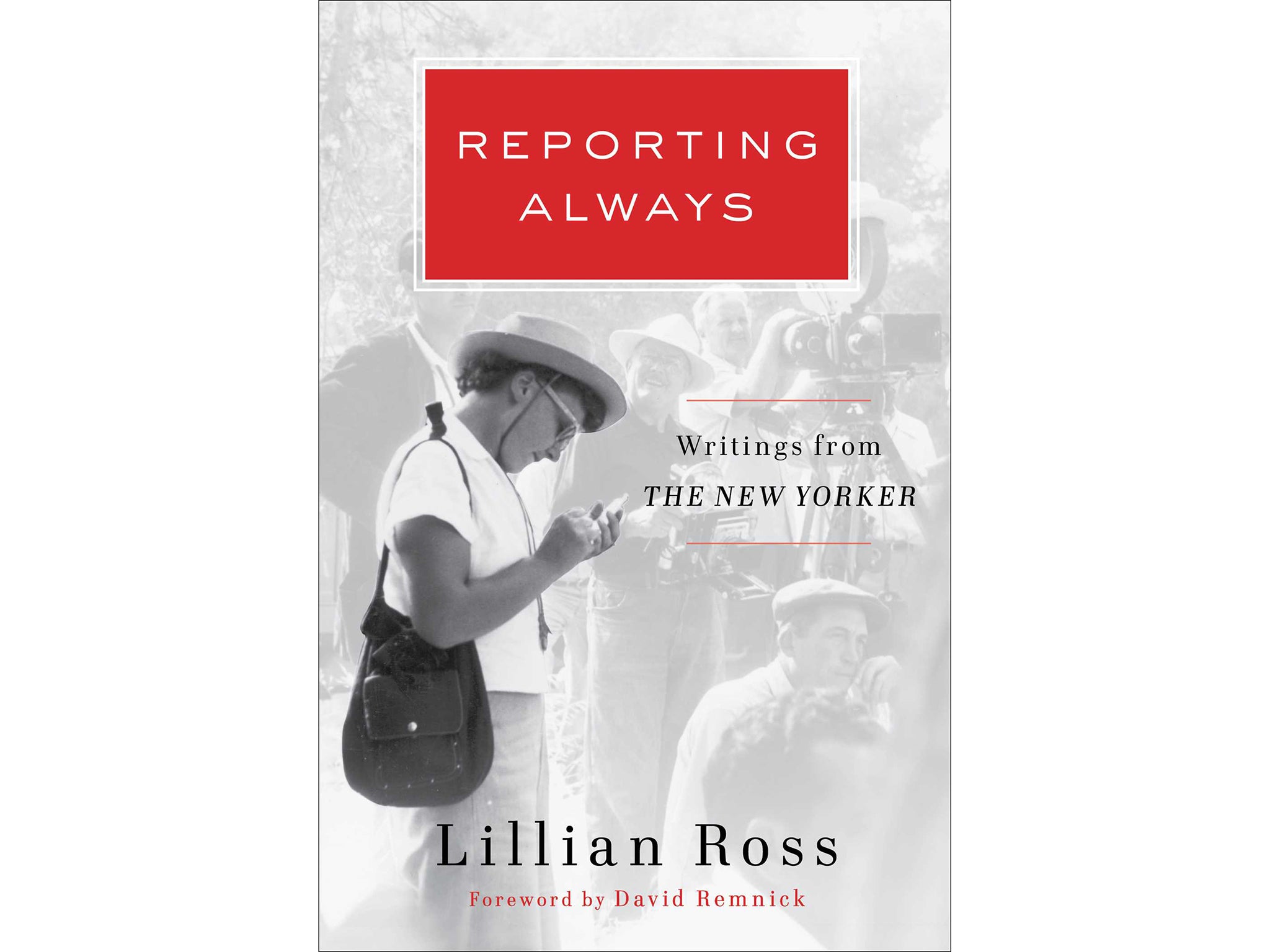Reporting Always by Lillian Ross, book review: The original celebrity interviewer
Shadowing everyone from Charlie Chaplin to Clint Eastwood, she invented the entertainment profile as we came to know it

Your support helps us to tell the story
From reproductive rights to climate change to Big Tech, The Independent is on the ground when the story is developing. Whether it's investigating the financials of Elon Musk's pro-Trump PAC or producing our latest documentary, 'The A Word', which shines a light on the American women fighting for reproductive rights, we know how important it is to parse out the facts from the messaging.
At such a critical moment in US history, we need reporters on the ground. Your donation allows us to keep sending journalists to speak to both sides of the story.
The Independent is trusted by Americans across the entire political spectrum. And unlike many other quality news outlets, we choose not to lock Americans out of our reporting and analysis with paywalls. We believe quality journalism should be available to everyone, paid for by those who can afford it.
Your support makes all the difference.When, in 1950, The New Yorker published a profile of Ernest Hemingway written by Lillian Ross, both writer and subject were bemused that some saw it as a hatchet job. Ross had followed Hemingway as he larked about New York City on a brief stopover: having Marlene Dietrich over to his hotel suite for caviar and champagne and the like. The problem was Ross’s unforgiving attention to detail. Hemingway could be read as a drunken bore. Not that he took offence. “Just call them the way you see and to hell with it.” Which is exactly what Ross did.
Joining The New Yorker as a staff writer in 1945, she quickly made a name for herself. In shadowing everyone from Charlie Chaplin to Clint Eastwood, she invented the entertainment profile as we came to know it. Reporting Always is a collection of those profiles, her character-led reportage and diary pieces.
Ross was the first to structure her writing in scenes, as in a film. Fittingly, it was with a 1952 piece on Hollywood that she made her mark. In “Throw the Little Old Lady Down the Stairs!”, over 16,000 words, she follows John Huston as he directs The Red Badge of Courage. As with the very best writing, hers is simple yet incredibly effective. Huston has “a deeply creased, leathery face, high cheekbones, and slanting, reddish-brown eyes”.
On the streets, her reportage transports us as well as any grainy documentary footage could. Reporting Always offers scintillating historical snapshots as well as a masterclass in prose.
Order for £15.99 (free p&p) from the Independent Bookshop: 08430 600 030
Join our commenting forum
Join thought-provoking conversations, follow other Independent readers and see their replies
Comments